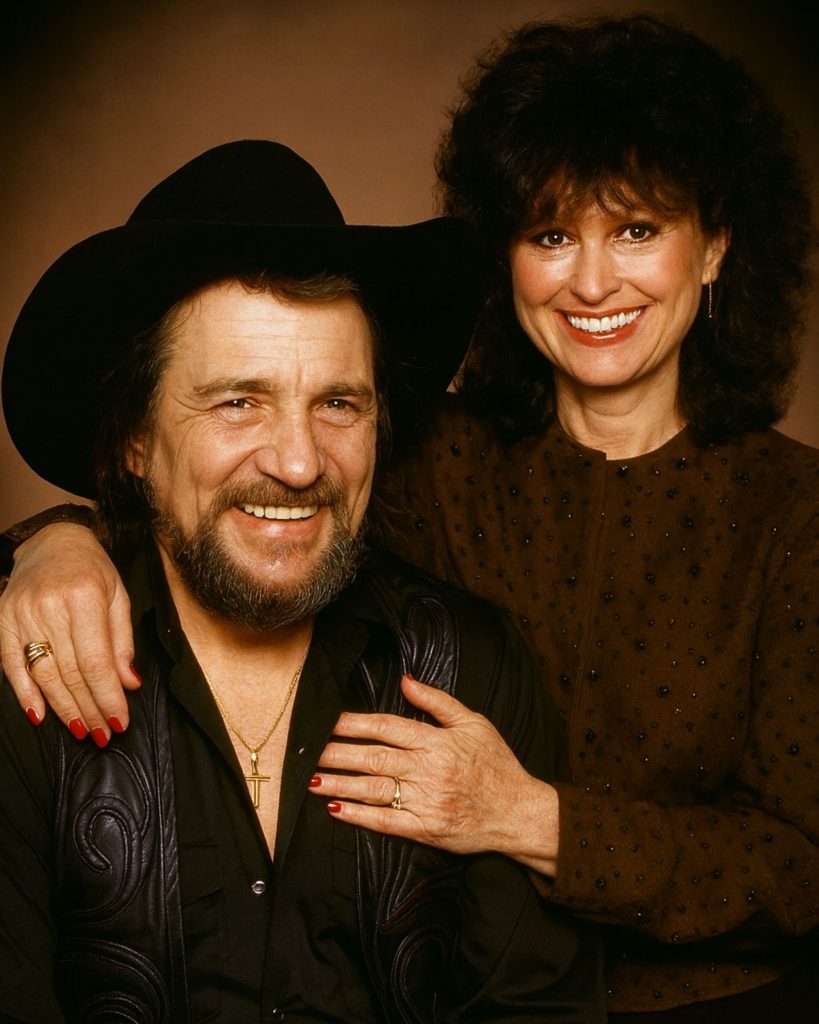
There was a time when Waylon Jennings seemed to vanish into the kind of darkness the music world rarely speaks about. Fame had burned him out; the man who once thundered on stage drifted, tangled in addiction and doubt. He might have been lost for good if not for one steady hand: Jessi Colter.
Their story is not a tidy Hollywood rescue. It is quieter, and it is truer. Jessi stayed when others left. She kept faith when the lights went out. Out of that endurance they made a small, spare song that became a beacon — a promise within a melody called “Storms Never Last.” The song, written by Colter and sung by the two of them, reads like a line of advice and a vow rolled into one.
The duet is simple: two voices leaning into each other, not to show off, but to hold one another up. When they sang it, listeners heard more than harmony. They heard a marriage that had survived public crashes and private fights. They heard trust and the stubborn, patient work of staying.
It wasn’t music that saved me — it was Jessi. — Waylon Jennings, country star
That admission, offered quietly by Waylon in later years, has become as much a part of the song’s power as the melody itself. Fans say the recording reads like a conversation between the two: an honest exchange about fear, forgiveness, and the slow steadiness of love.
Hold on, this too shall pass. — Jessi Colter, songwriter and singer
Those words from Colter — part lyric, part comfort — have been the line people return to in hard moments. The message is plain and old as country music: trouble comes, trouble goes, but what matters is who stands by you while you wait it out.
Listen to the track and you hear life lived into song. The arrangement is spare. The harmonies are intimate. The recording has been played on late-night radio, at kitchen tables and in living rooms where listeners in their later years find a particular kind of consolation. For older audiences, the song is not nostalgia alone; it is counsel. It reminds people that wounds heal slowly, that making it through tough times is a form of everyday heroism, and that love can be the strongest kind of medicine.
Behind the quiet music are harder truths. Jennings’ battles with addiction and the toll of stardom are well known; Colter’s decision to remain beside him was not dramatic theatre but steady care. Their duet is evidence of a private labor that often goes unseen: spouses tending to each other’s shattered edges until repair is possible. The song’s plainspoken optimism does not erase pain, but it makes pain survivable.
For country music historians and fans, the recording is also a document of an era — a reminder that the outlaw movement was not only about rebellion on stage but also real people dealing with real problems off it. The performance is a small, human counterpoint to the image of the lonesome, larger-than-life star.
Radio hosts still program the duet for listeners who want calm rather than spectacle. Community musicians pick it up for memorials and anniversaries. It travels quietly from ear to ear, passed along by those who still prefer a clear message over flash.
There is a tension at the heart of the song: it says storms are temporary, yet it shows how long healing can take. That tension is the reason people return to the recording again and again — not to forget the hurt, but to be reminded that someone stayed when leaving would have been easier. It is the evidence of what steady love looks like when the lights go out and the world grows strangely silent —